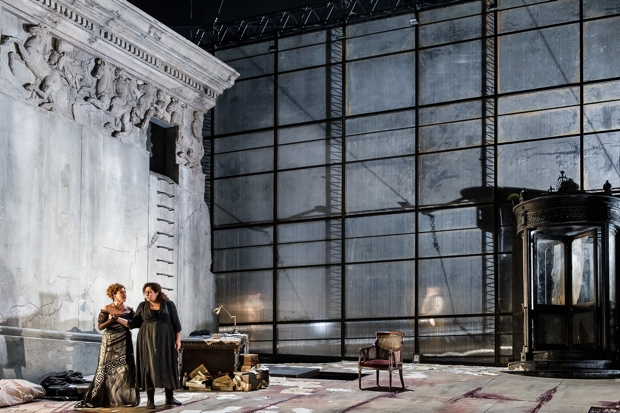This is the first of my more-or-less monthly columns, the idea of which is to report on operatic events other than those that take place at the two major London venues, with occasional trips to those areas (i.e., everywhere other than London) where the annual government grant for the arts is £4.80 per head, while in London it is £69.00. This fact was widely reported a few weeks ago, but while I thought for an hour or two that it might lead to a revolution, there was no widespread articulate reaction to it of any kind, nor, so far as I know, any indication that this gross inequity would be addressed. So if conspicuous consumption is what you’re after, you’ll know where you have to be.
That’s not my main topic for this particular column, however. What I want to do is say something about the two operatic composers who have major anniversaries this year, one of whom I feel is grotesquely overestimated, the other, conveniently, shockingly underestimated. Peter Phillips mentioned them both in his article last week, saying that Richard Strauss is ‘the only big name’ this year, having been born in 1860; while Phillips categorised as ‘second-rate’ Gluck, who was born in 1714.
To take Gluck first, it has been perhaps the major disappointment of my years as a reviewer that there have been so few productions of Gluck’s major operas: the two Iphigénies, Alceste, Orfeo ed Eurydice and its French version, Armide and Paride ed Elena, at the very least. I don’t see how you can possibly call these works second-rate, though they may not be as great as Mozart’s near-contemporaneous five masterpieces. The only one I went to an adequate, indeed revelatory performance of was Paride ed Elena, and that was in concert at the Barbican under Paul McCreesh in 2003. I see from the cover of the DG recording that was made of it that I described it as ‘a milestone in our understanding of Gluck’s genius’, but though that’s a judgment I certainly stand by, I don’t think any productions or performances of this wonderful work have been forthcoming. Iphigénie en Tauride, Gluck’s greatest work, has only had a silly semi-danced production at Covent Garden, in which Simon Keenlyside as Oreste was tossed around by the chorus, and the tense drama disappeared; and so on. These relatively brief, tightly constructed works, with their unique line in nobility (not used as synonymous with boredom) and pathos, and their high drama, need straightforward productions and austere, intense musical performances and it’s hard to see that they won’t finally get back into the centre of the repertoire where they belong. But so far as I can see none of the major opera houses is preparing to rise to the occasion.
Naturally, we are guaranteed plenty of Richard Strauss, with Glyndebourne opening its season in May with a new production of Der Rosenkavalier. If there is one work the thought of which never seeing again makes me happy, that’s it. I love about half an hour of it and abominate the padding that constitutes the other three hours. But it will always be with us, if only because any soprano capable of singing the Marschallin can’t resist that indulgence. Salome is fun, though when I say so people think it’s a laboured attempt to be camp on my part. Elektra, the stunning Royal Opera performance of which I’ve just heard on Radio 3, is, like most Strauss, overextended and really a thriller rather than a tragedy. Ariadne auf Naxos is largely enchanting, but it’s virtually impossible to make Bacchus tolerable, and in fact, as so often, Strauss is tempted to send himself up. Dedicated Straussians must be salivating over the prospect of Die Frau ohne Schatten at the Royal Opera, but given the portentousness of its subject matter, and the appalling longueurs of the final act, won’t even they feel a bit fidgety?
Anyone who seriously respects what Strauss can do well and what makes him a striking phenomenon in the history of opera and music generally should be ready to admit that of all the great composers, if he is that, his taste is the least reliable. He came at the wrong time in the history of music, when gargantuanism was encouraged, whereas his gifts are most manifest in pieces of modest dimensions that don’t take themselves too seriously, Intermezzo being the obvious case — but why isn’t that being done more?
In the later operas the sheer amount of mellifluous but purposeless note-spinning gets absurdly out of hand, and that applies to some extent even to the swansong Capriccio. Aren’t there parts of that which its admirers look forward to and others which, if they could bear to be honest with themselves, they would admit that they’d long to get past? On the other hand, if you like the kind of noise that Strauss makes, that tells you instantly that it’s him you are hearing — and there is no composer whose identity is so immediately revealed in all his work — then you will delight in the fact that he produced so many hours of music that do nothing more or less for us than they did, on his own admission, for him: pass the time of day.






Comments